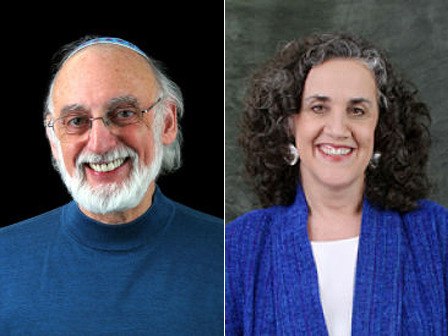They describe themselves as “two halves of a cerebral cortex.”
John and Julie Gottman have spent much of their professional careers walking down separate paths. But 15 years ago, they blended their two areas of expertise – John was a scientist and Julie was a therapist – to offer innovative therapy for couples across the globe.
“It’s been a journey,” Julie said. “In the beginning, John was all about science. We fought a lot about the truth of therapy. We had those early battles, and over time, we got closer and closer. Our work really began to interface.”
The Gottmans met in 1986 when Julie was a clinical psychologist and John was a professor at the University of Washington. They had moved to Seattle from different parts of the country within three months of each other. A year later, they were married.
John spent decades conducting research on why some couples stay together and others divorce. He studied more than 3,000 married couples (both straight and gay) in varying stages of their relationship as well as parents and children. John studied one group of couples for 20 years.
Meanwhile, Julie had her own practice specializing in sexual, physical and mental trauma, addictions, and cancer patients.
Since the beginning of their relationship, they had been coming to Orcas Island. In 1995, they were sitting in a canoe on the North Shore and began talking about using their knowledge to help couples. They started holding workshops together in Seattle, using John’s research and Julie’s clinical experience to develop theories about love, marriage, and parenting.
And that’s when things exploded.
Attendance at their workshops grew from 40 to 200. They partnered with Etana Kunosky to create the Gottman Institute of Seattle. They developed therapy for clinicians to use, offered advanced training and certifications, created national curriculum for couples on welfare to improve their relationships and parenting skills, conducted additional research studies, started the Relationship Research Institute, and wrote a handful of books. John has appeared on the BBC, Oprah, 20/20, 60 Minutes and Good Morning America.
“We teach together, we think together, and we’re designing research together,” John said.
In 2008, four days after their daughter graduated from high school, the Gottmans moved to Orcas Island full-time. But it hasn’t slowed down their work.
They offer weekend retreats for couples at their home, teach to clinicians to all over the world (next on their list is Iceland), are finishing a research study on domestic violence, both have private practices, and John’s latest book “Science of Trust” is coming out next month.
Their theories
John and Julie base their work on what they call the “Sound Relationship House” theory. It involves three parts: making conflict constructive, friendship and intimacy, and building a shared sense of purpose. John can predict, with 94 percent accuracy, whether or not a couple will divorce based on those three factors.
In his research, John broke his research subjects into two groups: “Masters of Relationships” and “Disasters of Relationships.”
“The masters were gentle during conflict,” John said. “The disasters would point fingers, blame the other person, and imply ‘I am perfect.’”
John and Julie identified what they call the “Four Horsemen of the Apocolypse” that occur during conflict: criticism, defensiveness, contempt, and stonewalling.
Being good friends with your partner is connected to how you resolve conflict.
“You can’t understand conflict without understanding friendship,” John said.
The third component, creating a sense of purpose together, can be based upon shared religious beliefs, values, ethics, life goals, and how to raise children.
“You use your shared purpose to get through the hard times,” Julie said.
Advice for couples
John and Julie offer the following principles for improving your relationship.
• When bringing up a problem, desribe your own feelings, not personality flaws in your partner.
• Ask for what you need not what you don’t need.
• Take responsibility for your contribution rather than being defensive.
• If you feel overwhelmed during a conflict, take a break and do something self-soothing. When you come back to the discussion, it will be entirely different than when in the heat of the moment.
• Try very hard to avoid contempt. It is the most corrosive thing to a relationship.
• Express appreciation every day. Don’t just think it. Say it.
• If you start feeling defensive, say, “I feel criticized. Can you say that another way?”
• If your partner makes a bid for attention or affection, try to turn towards them rather than away. Do not say things like “Don’t be needy.”
• Keep asking your partner questions to stay in touch with their inner world. Ask open-ended questions that draw on what your partner believes, feels, and thinks.



